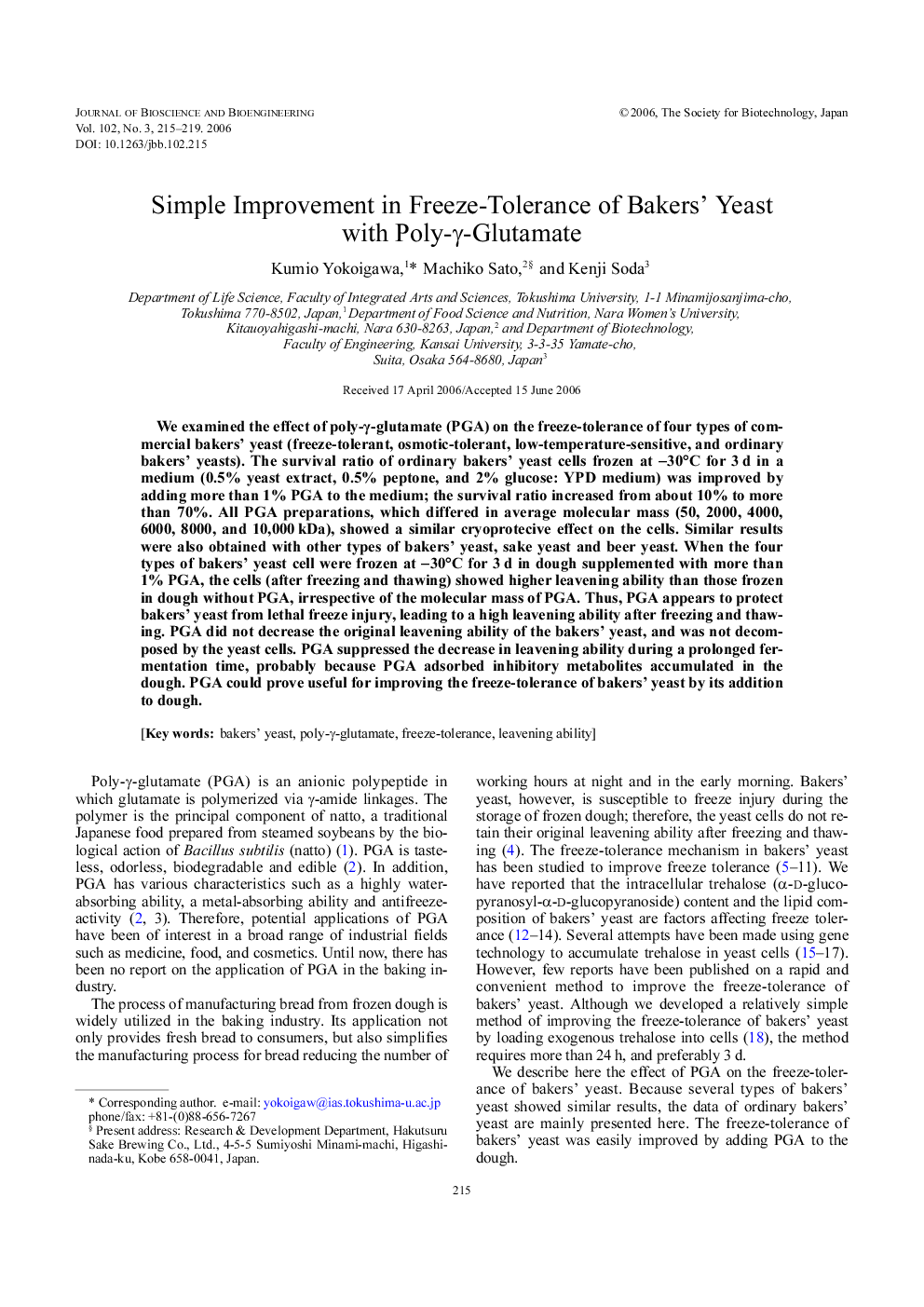| Article ID | Journal | Published Year | Pages | File Type |
|---|---|---|---|---|
| 22111 | Journal of Bioscience and Bioengineering | 2006 | 5 Pages |
We examined the effect of poly-γ-glutamate (PGA) on the freeze-tolerance of four types of commercial bakers' yeast (freeze-tolerant, osmotic-tolerant, low-temperature-sensitive, and ordinary bakers' yeasts). The survival ratio of ordinary bakers' yeast cells frozen at −30°C for 3 d in a medium (0.5% yeast extract, 0.5% peptone, and 2% glucose: YPD medium) was improved by adding more than 1% PGA to the medium; the survival ratio increased from about 10% to more than 70%. All PGA preparations, which differed in average molecular mass (50, 2000, 4000, 6000, 8000, and 10,000 kDa), showed a similar cryoprotecive effect on the cells. Similar results were also obtained with other types of bakers' yeast, sake yeast and beer yeast. When the four types of bakers' yeast cell were frozen at −30°C for 3 d in dough supplemented with more than 1% PGA, the cells (after freezing and thawing) showed higher leavening ability than those frozen in dough without PGA, irrespective of the molecular mass of PGA. Thus, PGA appears to protect bakers' yeast from lethal freeze injury, leading to a high leavening ability after freezing and thawing. PGA did not decrease the original leavening ability of the bakers' yeast, and was not decomposed by the yeast cells. PGA suppressed the decrease in leavening ability during a prolonged fermentation time, probably because PGA adsorbed inhibitory metabolites accumulated in the dough. PGA could prove useful for improving the freeze-tolerance of bakers' yeast by its addition to dough.
